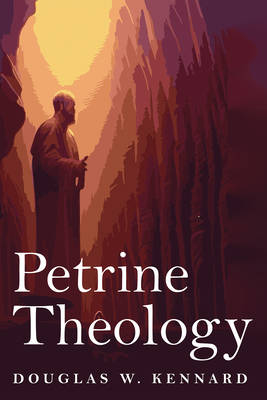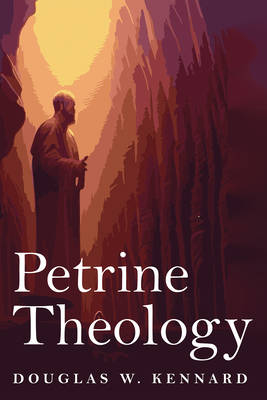
- Afhalen na 1 uur in een winkel met voorraad
- Gratis thuislevering in België vanaf € 30
- Ruim aanbod met 7 miljoen producten
- Afhalen na 1 uur in een winkel met voorraad
- Gratis thuislevering in België vanaf € 30
- Ruim aanbod met 7 miljoen producten
Zoeken
Omschrijving
Using a similar method to Kennard's biblical theology of Jesus, Hebrews, and Isaiah, Kennard's Petrine Theology makes contributions to Peter's theology, including: Peter's Jewish heritage, bridging from Jesus to Paul, expressing compatible sovereignty and free will, high Christology, missional Trinity, Hebraic anthropology, Jewish atonement, redemption and new exodus, gospel as allegiance to Christ, contextual sociological ecclesiology, suffering and spiritual warfare in a narrow virtuous way to kingdom, and nuanced consistent eschatology. The companion volume, Petrine Studies, fills out background issues, narrative biographical theology, and practical life concerns from Mark. Following a combination of Mark, Peter's sermons in Acts and Petrine epistles, Gene Green claims that Petrine theology makes unique contributions to Christian theology. Pheme Perkins concurs, "Peter is the universal 'foundation' for all the churches . . . There is no figure who compasses more of that diversity than Peter." F. J. Foakes-Jackson concluded, "the very fact that Peter was singled out by the unanimous voice of the writers of the NT for pre-eminence is sufficient reason why he should demand our serious attention." James Dunn celebrated, "Peter was probably in fact and effect the bridge-man (pontifex maximus!) who did more than any other to hold together the diversity of first-century Christianity."
Specificaties
Betrokkenen
- Auteur(s):
- Uitgeverij:
Inhoud
- Aantal bladzijden:
- 378
- Taal:
- Engels
Eigenschappen
- Productcode (EAN):
- 9781725271166
- Verschijningsdatum:
- 23/09/2022
- Uitvoering:
- Paperback
- Formaat:
- Trade paperback (VS)
- Afmetingen:
- 152 mm x 229 mm
- Gewicht:
- 508 g

Alleen bij Standaard Boekhandel
+ 130 punten op je klantenkaart van Standaard Boekhandel
Beoordelingen
We publiceren alleen reviews die voldoen aan de voorwaarden voor reviews. Bekijk onze voorwaarden voor reviews.








